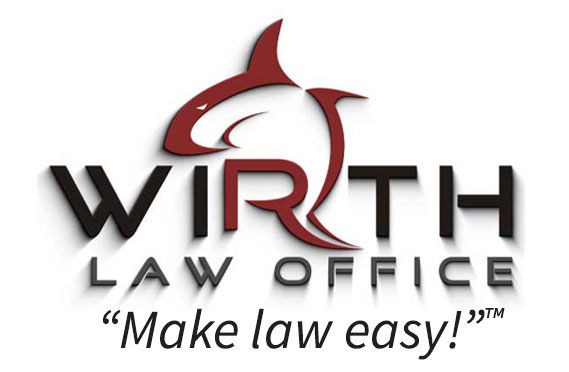Wagoner Lawyer Blog
Oklahoma Property Crimes: Obtaining Property by False Pretenses
This is a crime about obtaining property through some sort of trick or fraud, almost like a forgery or some kind of scheme. Read more »
Oklahoma Property Crimes: What is Embezzlement?
Embezzlement is a crime against ownership because the person has acquired possession by legal means, but it is not their money. Read more »
Oklahoma Criminal Defense: Crime of Conspiracy
A conspiracy is an agreement between two or more people to commit a crime. It's not that the crime is committed, but there's a plan. Read more »
Oklahoma Criminal Defense: Crime of Attempt
You can't just be thinking about a crime, you have to perform some action. Even if you fail to commit the crime, you still attempted it. Read more »
Oklahoma Criminal Defense: Alibi
The best evidence for an alibi would be an objective, non-biased witness. For example, if you're at a store where there's a camera. Read more »
Oklahoma Criminal Defense: Self-Defense
Self-defense is defending yourself against an attack or aggressor. If somebody is attacking you, you are allowed to use force. Read more »
Oklahoma Crimes: Aiding and Abetting
The law says all persons or person participating in a crime are equally guilty even if people involved did worse things than others. Read more »
Oklahoma Law: Sixth Amendment Rights
The accused shall get the right to a speedy and public trial by a jury of the state and district, where the crime has been committed. Read more »
Oklahoma Law: Right to Plead the Fifth
The Fifth Amendment is known as your right to remain silent, which is, you do not have to speak. You can't be forced to incriminate yourself. Read more »
Oklahoma Law: Rights of U.S. Citizens in Criminal Cases
Police law enforcement cannot just bust into your house and search. There are some exceptions to needing a warrant. Read more »
What Is the Statute of Limitations in Oklahoma?
The statute of limitations is how long the state of Oklahoma has to press charges against a person based on when the crime was committed. Read more »
Oklahoma Arrests: Warrant vs. Without Warrant
Without a warrant, that person's going to be arrested right there on the spot. With a warrant, a significant amount of time might go by. Read more »
Oklahoma Law: Burglary vs Larceny
In Oklahoma, larceny from a house requires an intent to steal something, while burglary may not involve a theft at all. Read more »
Assault and Battery: What Is the Difference?
Assault refers to the wrong act of causing someone to reasonably fear imminent harm. This means that the fear must be something a reasonable person would foresee as threatening to them. Battery refers to the actual wrong act of physically harming someone. Read more »
How Evidence Does Work in a Case?
Evidence has to be relevant. So in a criminal case, either side can't just bring in whatever testimony they want or photographs they want. Read more »
What Are the Two Main Classifications of Crimes in Oklahoma Law?
Oklahoma has only two criminal offense classifications, in order of seriousness: felonies and misdemeanors. Read more »
Oklahoma Divorce: What Is a Temporary Order?
A temporary order is a court order signed by a judge either after a hearing or entered by the parties after an agreement by the parties. Read more »
What Are the Possible Punishments in Criminal Cases in Oklahoma?
Prison is an option and there'll be punishment ranges, anywhere from one year up to life or anything in between, depending upon the crime. Read more »
What Is a Criminal Information?
Once you are charged with a crime, the official charging document or paperwork is called a criminal information. Read more »
Crimes in Oklahoma: What You Must Know
Every crime in Oklahoma is listed in our statute books, in our law books, and of course, they have to be, they're all found in Title 21 of the Oklahoma law. Read more »
What Is an Allen Discovery Hearing in a Criminal Case?
An Allen Discovery Hearing is a court hearing where both sides, the defendant and Oklahoma, announce where the discovery process is. Read more »
What Is a District Court Arraignment?
An arraignment in district court is the first step of the formal legal process after a person has been charged with a crime. Read more »
What Is a Plea Deal?
A plea deal is an agreement in criminal law proceedings, whereby the prosecutor provides a concession to the defendant. Read more »
What Is a Criminal Preliminary Hearing?
The purpose of the preliminary hearing is to determine whether there is sufficient probable cause to believe that a crime was committed. Read more »
How Does the Criminal Process Start?
The criminal process can start in two ways if you are the subject of the criminal activity. There can be a bench warrant out for your arrest and you might not even know it Read more »







